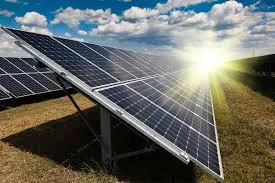solar panels lose efficiency over time
Understanding Solar Panel Efficiency Loss Over Time
Solar panels are a cornerstone of renewable energy, transforming sunlight into electricity and helping to reduce our reliance on fossil fuels. However, like any technology, they are not immune to wear and tear. Over time, solar panels can lose efficiency, which has implications for both homeowners and the broader transition to sustainable energy.
The phenomenon of efficiency loss in solar panels is primarily attributed to a variety of factors, including environmental conditions, material degradation, and technological limits. Research shows that most solar panels experience a gradual decline in performance, typically around 0.5% to 1% per year. This means that after 25 years, a solar panel that originally operated at 100% efficiency might only be functioning at approximately 75% to 85%.
One significant factor contributing to efficiency loss is exposure to the elements. UV radiation, temperature fluctuations, and moisture can all degrade the materials used in solar panels. For instance, prolonged exposure to high temperatures can result in thermal fatigue, which can damage the cell structure and reduce its ability to generate electricity. Additionally, accumulating dirt, dust, and debris can obstruct sunlight and diminish performance unless panels are regularly cleaned.
solar panels lose efficiency over time

Another critical factor is the quality of materials used in the manufacture of solar panels. Higher-quality panels typically use more durable materials and advanced technology, allowing them to resist degradation better than lower-quality counterparts. Investment in high-quality products can result in longer-lasting efficiency, which is crucial for maximizing return on investment, especially for homeowners.
Technological advancements also play a role in efficiency loss. The solar industry continuously strives to improve the efficiency and longevity of solar panels. Innovations in technology, such as bifacial panels that capture sunlight on both sides, promise to reduce efficiency loss in future models.
It is essential for solar panel owners to be aware of these factors and consider regular maintenance to mitigate efficiency loss. Simple actions like cleaning panels and ensuring that trees or other obstructions do not overshadow them can help maintain optimal performance.
In conclusion, while solar panels do lose efficiency over time, understanding the causes of this decline can empower users to make informed decisions. By investing in quality products, performing regular maintenance, and keeping abreast of technological developments, homeowners can maximize the longevity and effectiveness of their solar energy systems. As we strive towards a sustainable energy future, preserving the efficiency of solar panels will play a pivotal role in enhancing the viability of solar energy as a reliable power source.
-
Unlocking Energy Freedom with the Off Grid Solar InverterNewsJun.06,2025
-
Unlock More Solar Power with a High-Efficiency Bifacial Solar PanelNewsJun.06,2025
-
Power Your Future with High-Efficiency Monocrystalline Solar PanelsNewsJun.06,2025
-
Next-Gen Solar Power Starts with Micro Solar InvertersNewsJun.06,2025
-
Harnessing Peak Efficiency with the On Grid Solar InverterNewsJun.06,2025
-
Discover Unmatched Efficiency with the Latest String Solar InverterNewsJun.06,2025







